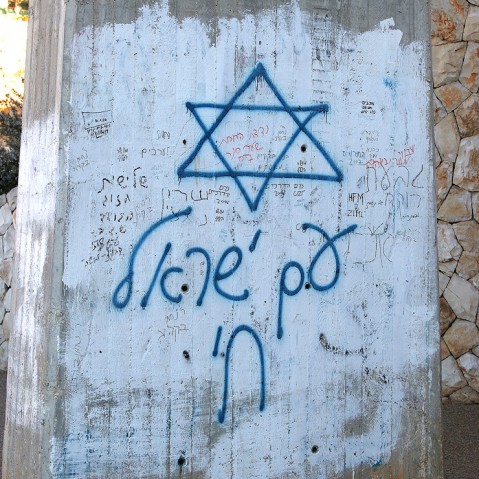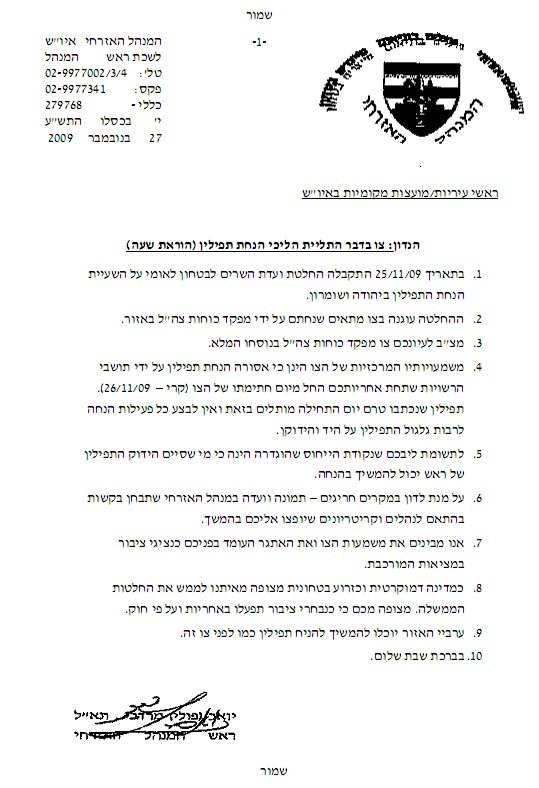
The New York Times
shared a fascinating report on a very public court case in England about whether a Jewish school was required to admit a specific student. Fascinatingly, British public schools are religious in nature - the Jewish school is in fact a public school. (Wouldn't American Jews just
love to have that financial burden lifted off their backs?) Additionally, the recognized United Synagogue in Britain falls under Orthodox auspices, under the capable leadership of Chief Rabbi Lord Jonathan Sacks. So when a student whose mother is not Jewish applied and was rejected for not technically being Jewish (according to Orthodox standards), the student sued for discrimination. The Times piece continues,
In an explosive decision, the court concluded that basing school admissions on a classic test of Judaism — whether one’s mother is Jewish — was by definition discriminatory. Whether the rationale was “benign or malignant, theological or supremacist,” the court wrote, “makes it no less and no more unlawful.”
The case rested on whether the school’s test of Jewishness was based on religion, which would be legal, or on race or ethnicity, which would not. The court ruled that it was an ethnic test because it concerned the status of M’s mother rather than whether M considered himself Jewish and practiced Judaism.
While I'd love to agree with the Orthodox position in the case that the decision was a religious one and not ethnic in nature, I can't. To me, the issue boils down to a simple question: Is Judaism a religion, or is it a race - a nationality? First we need to define terms. What's a religion, and what's a nationality? Let's turn to the
dictionary:
Religion: a set of beliefs concerning the cause, nature, and purpose of the universe, esp. when considered as the creation of a superhuman agency or agencies, usually involving devotional and ritual observances, and often containing a moral code governing the conduct of human affairs.
Nationality: the status of belonging to a particular nation, whether by birth or naturalization; Nation: a large body of people, associated with a particular territory, that is sufficiently conscious of its unity to seek or to possess a government peculiarly its own (I highlighted that last part.)
Of course, you'll answer: Judaism is a religion. It demands practices and beliefs. But then, what difference does it make whose mother was what? How can whether a Jew eats a ham sandwich on Yom Kippur have no affect on his or her Judaism? (see the article) In reality, Judaism is both. On one hand, it does have aspects of nationality and ethnicity. Yet, it's also got trappings of religion. The question then becomes, which is it more? What's the defining quality of Judaism - the aspect of theology or the nationality?
To me the answer is clear: First and foremost, Orthodoxy views Judaism is an ethnicity. To be more precise, it's a nationality - one into which Jews are born. It's a fact, a reality completely divorced from behavior or belief. If you accept that according to the Torah one's Judaism stems from the birth mother, I don't really see any way around this. Once you're born into that nationality, Judaism binds you with certain obligations, beliefs and practices. But if you're not born into it, you can practice the religion and adhere to the beliefs until the cows come home - but you're still not Jewish. Perhaps Louis Brandeis
said it best,
Let us all recognize that we Jews are a distinctive nationality of which every Jew, whatever his country, his station or shade of belief, is necessarily a member.
I'll give two simple examples from Judaism to illustrate my point:
1. When we call a man up to an aliyah to the Torah, he recites two blessings, one before the Torah reading, and one after. These two blessings reflect the dual nature of Jewish existence. The blessings are:
בָּרוּךְ אַתָּה ה' אֱלֹהֵינוּ מֶלֶךְ הָעוֹלָם, אֲשֶׁר בָּחַר-בָּנוּ מִכָּל הָעַמִּים וְנָתַן לָנוּ אֶת תּוֹרָתוֹ. בָּרוּךְ אַתָּה ה' נוֹתֵן הַתּוֹרָה
Blessed are You, LORD our God, king of the universe, who chose us from all the peoples and gave to us His Torah. Blessed are You, LORD, giver of the Torah.
בָּרוּךְ אַתָּה ה' אֱלֹהֵינוּ מֶלֶךְ הָעוֹלָם. אֲשֶׁר נָתַן לָנוּ תּוֹרַת אֱמֶת וְחַיֵּי עוֹלָם נָטַע בְּתוֹכֵנוּ. בָּרוּךְ אַתָּה יְדֹוָד. נוֹתֵן הַתּוֹרָה:
Blessed are You, LORD our God, king of the universe, who gave us the Torah of truth and set everlasting life in our midst. Blessed are You, LORD, giver of the Torah.
In simplest terms, the two blessings address these dual aspects of Jewish existence. On one hand, Judaism is a nationality, a binding of a people. And yet, it also demands behavior and action. But which blessing do we recite first? Which aspect takes the primary role? אשר בחר בנו מכל העמים - that God gave us the Torah as a means to choose us as a nation. First and foremost, we are a nation. Once we establish that principle we can then continue to the next aspect of Judaism which understand the Torah as a means to חיי עולם - eternal life - through adherence to God and His commandments.
2. Whenever you're at an interdenominational event and you want to sing a song that everyone knows, you've got pretty much two choices:
hava nagilah - I have no idea how that song got so popular, but they even play a bad version of it at baseball games - and
Am Yisrael Chai. Let's leave
have nagilah for a moment. What's the meaning of
Am Yisrael Chai? The
nation of Israel lives. Not the religion, but the nation.
Why isn't this obvious to all of us? The trouble seems to stem from 2000 years in the Diaspora. (2000 years of exile can do that to you.) Without a homeland, a language, a government, an army - all the trappings of a nation, we forgot our true identity. We forgot that Judaism is, first and foremost, a nationality. We forgot that we have a home, a country, and that we will only realize our true purpose in the world through the Jewish nation. Instead, we allowed Judaism to become in our minds a religion of strict practices, firm beliefs, required devotion. All important, but in the end, still just a religion.
We were wrong. We are not adherents of a religion. Judaism is a nationality; an ethnicity. And while that might not help the Jewish School in England, the sooner Jews in the Diaspora come to this realization, the better off the Jewish people - עם ישראל - the Jewish nation - will be.
 Audio Shiur:
Audio Shiur:



























